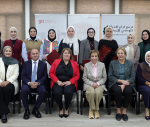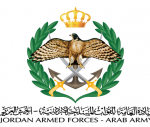You are here
Killing, yet expecting ‘normalisation’
Dec 31,2014 - Last updated at Dec 31,2014
Hamas has been criticised in liberal Western quarters for barring the visit to Israel of 37 children orphaned by Israel’s 50-day offensive against Gaza that killed 2,160 Gazans and wounded 6,000 last summer.
Those chosen for the visit were children of slain combatant fathers and orphans who lost both parents.
Hamas had the right to decide, since it remains the de facto administrator of the narrow coastal strip, although it had agreed to hand over authority to the Ramallah-based consensus government which has not assumed control.
Hamas said the proposed weeklong visit would disrupt the children’s education and promote “normalisation” with Israel while it continues to harm Palestinians, including children.
The ban on the visit coincided with the wounding at the Erez crossing by Israeli gunfire of three Palestinians protesting Israel’s continuing blockade of Gaza, which is preventing the UN and Gazans from rebuilding houses, schools and infrastructure damaged or destroyed during Israel’s air, land and sea campaign.
Hamas took its decision three days after a 15-year-old boy died of wounds sustained during Israel’s summer bombardments, which killed more than 500 children.
On Christmas Eve, a five-year old boy leaving a schoolbus was shot with a rubber-coated bullet in the face by an Israeli soldier in East Jerusalem.
Two weeks earlier, Israel refused to permit Bakr Hafi, a West Bank resident expelled to Gaza, to attend the funeral of his 18-month-old son, Emir, in the West Bank village of Artah where the child lived with his mother.
The father had never seen his son, who was afflicted with a terminal genetic disease. Arrested by Israel, held without charge and deported from the West Bank to Gaza, Hafi has been separated from his family for more than two years under the pretext that he is Gaza-born, although he had lived most of his life in the West Bank.
His appeal to attend the funeral was rejected by Israel’s supreme court.
None of the critics of Hamas said anything about the fact that Israelis are not permitted to go to Gaza (except as soldiers in tanks). Journalists, like Amira Hass, and peace activists, like Jeff Halper, are prohibited from visiting the strip although the former lived there for several years and Halper was a sailor on the first of the blockade-busting Free Gaza boats that sailed to the strip from Cyprus in 2008.
He was arrested and jailed briefly after crossing into Israel through the Erez terminal.
During the visit Hamas would not allow, organised by Yoel Mishak of the Kibbutz Movement and the Palestinian Israeli towns of Kafr Kassem and Rahat, the children were due to tour kibbutzim, Ramat Gan Safari park and Israeli towns along the Gaza border.
Apparently, 11 Gazan children were permitted to pay such a visit following the less bloody and less destructive 2008-09 Israeli onslaught on Gaza that slew 1,445 Palestinians.
Mishak was quoted by the Times of Israel as saying: “We initiated this [tour] to plant seeds of peace. In a few years, when these children become the leaders of the Gaza Strip, they will remember this positive experience well and know that they can live in peace, nation to nation.”
He seems to have failed to notice that the Israeli authorities are not interested in planting seeds of peace but in expropriating and colonising Palestinian land in the West Bank, taking over Palestinian houses and expelling Palestinians from occupied East Jerusalem, and maintaining the siege and blockade of Gaza, denying 100,000 Gazans the materials needed to rebuild houses destroyed and damaged during Israel’s latest and most devastating offensive.
During Israel’s assault, 1,500 children lost both their parents and, often, their houses. Tens of thousands are deeply traumatised.
The UN estimates that 373,000 children will need psychological counselling.
A Gazan friend consulted by this writer could not understand the thinking of Mishak and his Israeli-Palestinian collabourators in this effort. She said they should press the government to halt its aggressive policy towards Gaza and lift the siege and blockade, in line with the terms of last summer’s ceasefire brokered by Egypt.
She also argued that the exposure of Gazan children to “normality” in Israel could outrage and alienate them because they are subjected to constant intimidation and frequent attacks, shortages of essential foodstuffs and medicines, as well as other goods, and imprisonment in the strip.
Israel continues its punitive policies towards Gaza although the political atmosphere has changed over the past year.
Its one-sided assault on Gaza has turned international opinion firmly against Israel, prompting Sweden to recognise the virtual Palestinian state and the parliaments of Britain, Ireland, France, Portugal and Spain to call on their governments to follow suit.
While these parliamentary votes are not binding, they show just how far European public opinion has shifted.
Israel’s ongoing repression of West Bankers has prompted individuals to mount an “Intifada of lone wolves” against Israelis.
The boycott, divestment and sanctions movement has gained adherents and won mainstream support in Western countries.
Palestinian popular frustration with the failure of the Palestinian Authority to achieve progress towards statehood has compelled a reluctant PA to press for a UN Security Council resolution calling for a year of fresh negotiations and the emergence of the Palestinian state within two years.
Pressure has also increased on the PA to sign the Rome statute of the International Criminal Court and lodge cases against Israelis for committing war crimes and crimes against humanity against Palestinians, particularly during its latest Gaza war.
The PA has vowed to sign up for the court if the US cast a veto against the council resolution.
However, the resolution did not obtain the nine votes to pass in the council and there was no need for a US veto, although the US and its Australian mate voted against.
It is clear that the PA pressed for the vote on Tuesday to “save” the US from having to use its veto.
The Palestinians knew full well that they did not have the essential nine votes.
If the PA had waited until after the first of the new year, when Malaysia and Venezuela, countries sympathetic to the Palestinian cause, assumed rotating seats on the council, the PA would have had the nine essential votes and the US would have had to veto the resolution.
It remains to be seen whether the PA will honour its pledge to join the International Criminal Court. After all the US voted no.
If the PA does not sign the court statute and puts forward cases against Israelis, it is certain to lose the tenuous popular support it still enjoys and the “Intifada of lone wolves” could very well escalate.














